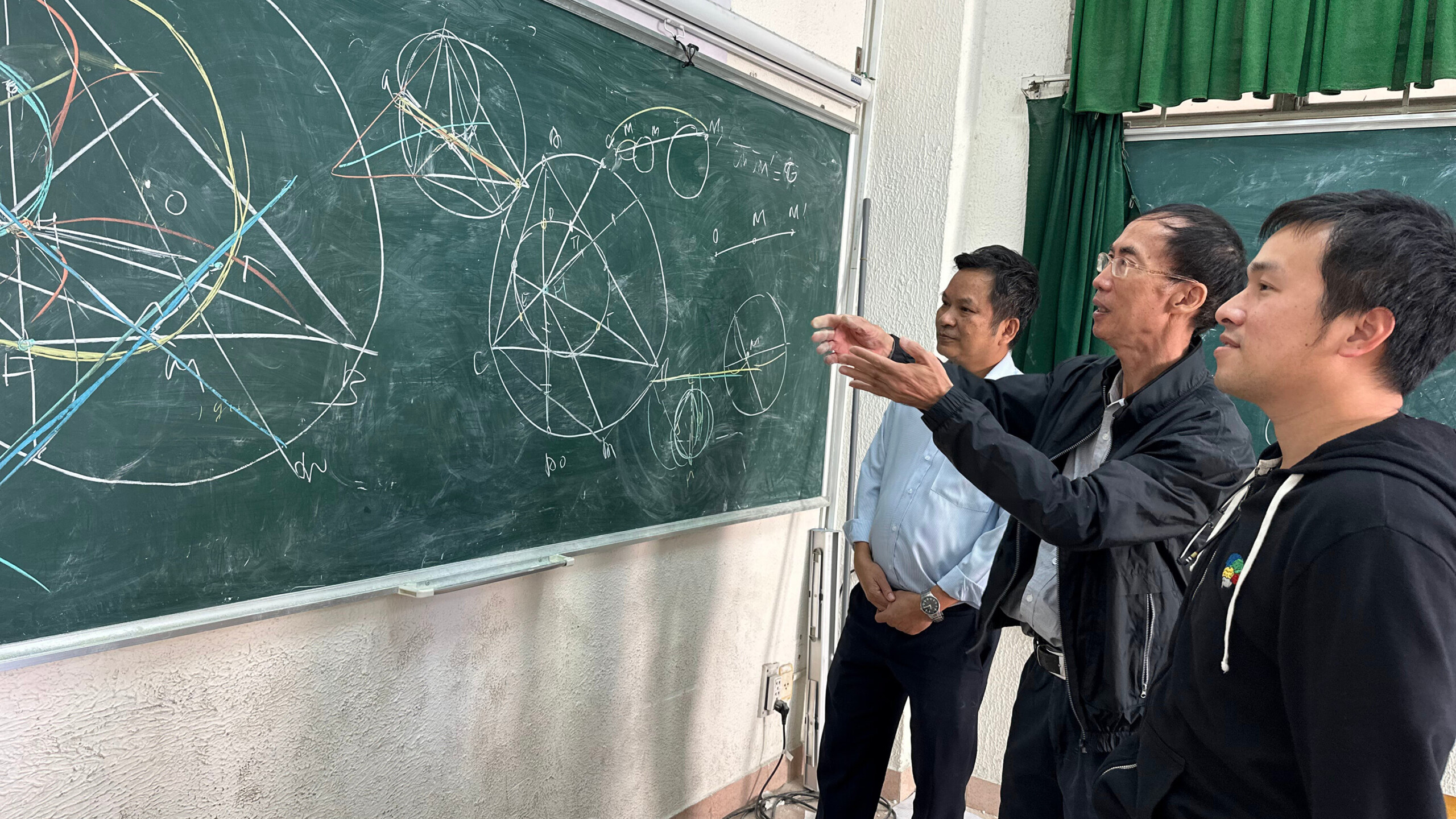Google DeepMind has introduced an AI system developed to address complex geometry problems, representing a notable stride towards imparting machines with more human-like reasoning capabilities, according to experts.
The domain of geometry, alongside mathematics in a broader context, has presented hurdles for AI researchers historically. In contrast to text-based AI models, mathematics poses a challenge in terms of training data availability due to its reliance on symbols and specialized domains, as highlighted by Thang Wang, one of the study’s coauthors published in Nature.
The core logical reasoning required for resolving mathematical problems stands as a skill that most current AI models lack proficiency in. Wang stresses that mathematics acts as a pivotal benchmark for assessing progress in AI intelligence due to the reasoning demand it imposes.
AlphaGeometry, the program devised by DeepMind, merges a language model with a symbolic engine—a form of AI that utilizes symbols and logical rules for deductions. While language models excel in recognizing patterns and predicting subsequent steps, their reasoning aptitude falls short when faced with mathematical challenges. Conversely, the symbolic engine functions based on formal logic and stringent rules, guiding the language model towards rational decision-making.
These dual methodologies, addressing creative thinking and logical reasoning respectively, collaborate to unravel intricate mathematical problems, closely resembling human problem-solving strategies in geometry by combining existing knowledge with exploratory experimentation.
During testing, AlphaGeometry tackled 30 geometry problems akin to the complexity level of the International Mathematical Olympiad, successfully solving 25 within the allocated timeframe. In contrast, the previous state-of-the-art system developed by Chinese mathematician Wen-Tsün Wu in 1978 could only resolve 10.
The commendable outcome received accolades from Floris van Doorn, a mathematics professor at the University of Bonn, who praised the accomplishment as surpassing expectations.
DeepMind affirms that this system underscores AI’s proficiency in reasoning and unveiling novel mathematical insights, reinforcing AI’s role in propelling scientific comprehension.
When addressing a geometry problem, AlphaGeometry initiates a proof generation process employing its symbolic engine propelled by logic. If the engine alone fails to generate a proof, the language model introduces new elements to the diagram, broadening the possibilities for the engine to pursue a solution. This iterative process continues until a verifiable solution is attained.
To train AlphaGeometry’s language model, researchers meticulously curated their training data due to the scarcity of existing geometric datasets. Nearly half a billion random geometric diagrams were generated and input into the symbolic engine, which then deduced statements regarding their properties. These statements were amalgamated into 100 million synthetic proofs to train the language model.
Roman Yampolskiy, an associate professor at the University of Louisville not associated with the research, praised AlphaGeometry’s advancement towards sophisticated problem-solving skills akin to humans, with implications spanning fields reliant on geometric solutions such as computer vision, architecture, and theoretical physics.
Despite its accomplishments in elementary mathematics problems, AlphaGeometry still encounters challenges with advanced, abstract problems typically encountered at the university level. The aim is to expand this approach to various mathematical domains beyond geometry, striving for profound reasoning capabilities in AI, as emphasized by Wang.






